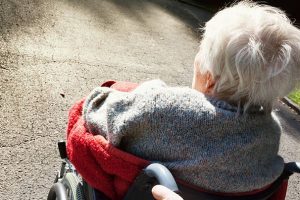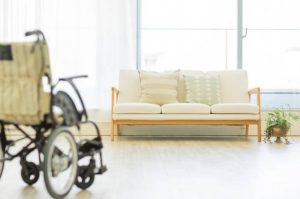Nursing Home Abuse
Many of us are brought up to respect our elders and treat them as honored members of society. Some societies go so far as to almost worship them and treat with deep care and veneration their parents, grandparents, and even ancestors who have passed on. That is why elder abuse is so particularly insidious. We’ve been brought up by these individuals who now trust us to take care of them when they can no longer take care of themselves.

When we place a parent or grandparent in a nursing home, it’s usually one of the hardest decisions we make and we put our full devotion and faith in the people we are asking to care for them. The majority of nursing homes are upstanding places that will go the extra mile to care for the elderly. However, as with any industry, there are “bad apples” that ruin the whole bunch, tainting them with a reputation. These “bad apples” are more than just a nuisance, though (http://nursinghomeabuseguide.com/negligence/nursing-home-neglect/). They’re a potentially dangerous threat to our loved ones. If you’re concerned about your loved one who is in a nursing home, these are the warning signs you should be on the lookout for (http://consumerjusticegroup.com/nursing-home-abuse/signsofabuse/).
Bedsores
Bedsores are generally a sign of negligent staff members who are not properly caring for their patients. These sores (sometimes called pressure sores) occur when a patient does not move enough and the contact with a bed begins to wear down and irritate their skin. Even the most immobile patients are expected to be moved regularly to keep their circulation up and to decrease the possibility of bedsores. Improper diet is another cause of these sores as hydration can greatly affect the skin. At first, the sores will just look like a red spot or irritated area on the skin. If left unchecked, it can progress to an open sore that has gone through the skin to expose the underlying tissues. If you notice your loved one has bedsores, this may be a sign that they are not being properly cared for.
Bruises
One of the most obvious signs of nursing home abuse will be bruises. When an older person is hit, their capillaries will break causing blood to pool and bruises to form. The problem is that these bruises will heal much more slowly in an elderly person as opposed to someone who is younger because of the elderly person’s slower circulation. Now please don’t misunderstand. A bruise is not an automatic sign of abuse. People get bruised every day. However, if you notice a bruise you should instantly bring this to the attention of the staff and ask about it. If their answer is not satisfactory, then you may wish to investigate further. In addition, the location or shape of the bruise can also be an indicator. A smaller bruise as if from fingers may be a sign. Also, if the patient has bruising on the thighs or genitals, this may be a sign of sexual assault and abuse.
Restraints
As with any medical setting, sometimes patients become combative and have to be restrained to protect them and the staff. This can be compounded when patients are dealing with dementia and become easily confused. However, physical and chemical restraints should be the exception, not the rule. Abusive nursing home staff will tie down the patients or give them such heavy medications that they are almost comatose. If you notice such restraints in the room during your visits or if your loved one is not as responsive as he or she may normally be, then you should bring this to the attention of the staff for possible investigation.
Weight Loss
When you get older, you tend to lose some of your appetite. This can be compounded if patients are on a serious drug regiment that is killing their desire to eat by upsetting their stomachs and digestive systems. However, nursing home staff are expected to be caring and supportive so they can coax even the most hesitant patient to eat. The staff should be trained in proper nutrition and hydration to prevent severe weight loss and disease. If you notice your loved one losing lots of weight rapidly, this may be a sign of nursing home abuse. It is also a possible complication as excessive weight loss can aggravate medical conditions and cause pain and suffering.
Contact Us at the Law Offices of Wolf & Pravato
One of the hardest things to realize about nursing home abuse is that it is easy to miss the injuries that are signs. Many of us simply attribute these bumps and bruises to the very nature of growing old. However, there are several clear-cut signs that you can look for. If you feel that your loved one is not being properly cared for, it is important for you to contact our Nursing Home Abuse Lawyers in Florida at the Law Offices of Wolf & Pravato to learn about your options in such a difficult case.





















